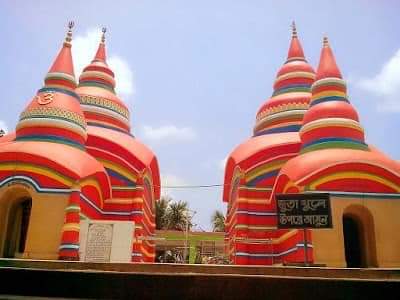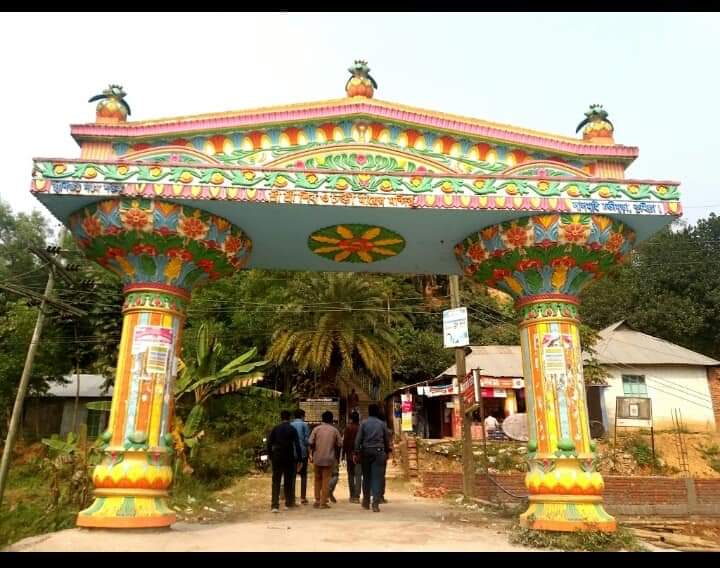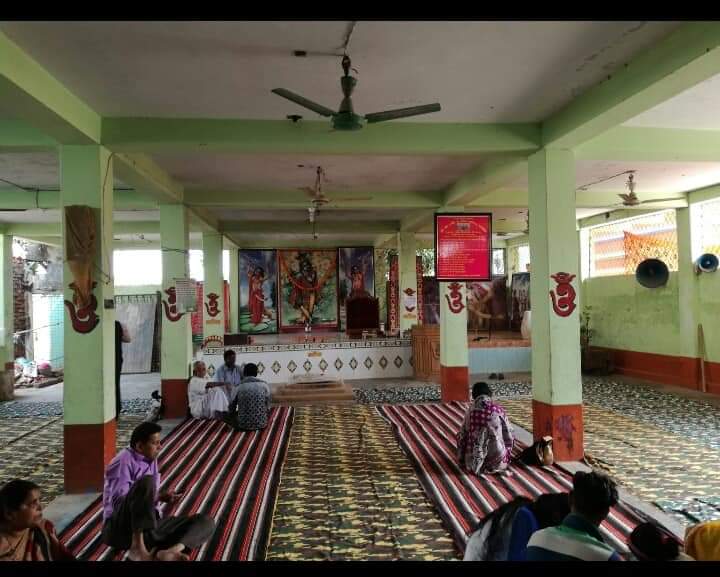Lalmai Chandi Temple, also called Chandimata Mandir, is an ancient Hindu temple located on the summit of the Lalmai hill in Barura Upazila of Comilla District, Bangladesh. The temple is dedicated to the Goddess Kali. There is a temple dedicated to the God Shiva nearby.
Chandi (Sanskrit: Caṇḍī) or Chandika (Caṇḍika) is a Hindu deity. Chandi is said to be the most ferocious incarnation of Adi Parashakti. Chandika form is said to be inaccessible because of her anger. She cannot tolerate evil acts. She slays evil doers without mercy. Details about the goddess can be found in Devi Mahatmya.
Chandi is one of the most popular folk deities in Bengal, and a number of poems and literary compositions in Bengali called Chandi Mangala Kavyas were written from 13th century to early 19th century. These had the effect of merging the local folk and tribal goddesses with mainstream Hinduism. The Mangal kavyas often associate Chandi with goddess Kali or Kalika and recognize her as a consort of Shiva and mother of Ganesha and Kartikeya, which are characteristics of goddesses like Parvati and Durga. The concept of Chandi as the supreme Goddess also underwent a change. The worship of the goddess became heterogeneous in nature.
Chandi is associated with good fortune. Her auspivcious forms like Mangal Chandi, Sankat Mangal Chandi, Rana Chandi bestow joy, riches, children, good hunting and victory in battles while other forms like Olai Chandi cure diseases like cholera, plague and cattle diseases.
These are almost all village and tribal Goddesses with the name of the village or tribe being added onto the name Chandi. The most important of these Goddesses is Mongol Chandi who is worshipped in the entire state and also in Assam. Here the word “Mongol” means auspicious or benign.
Source: Wikipedia & Google



